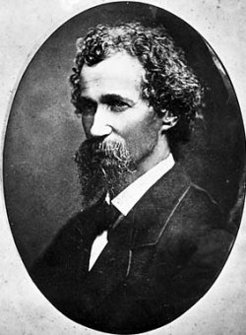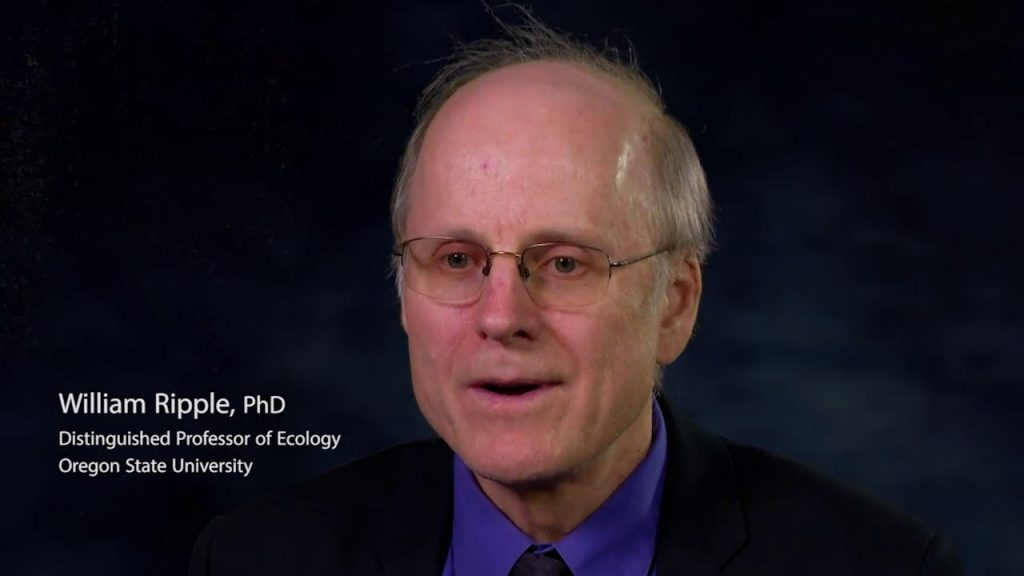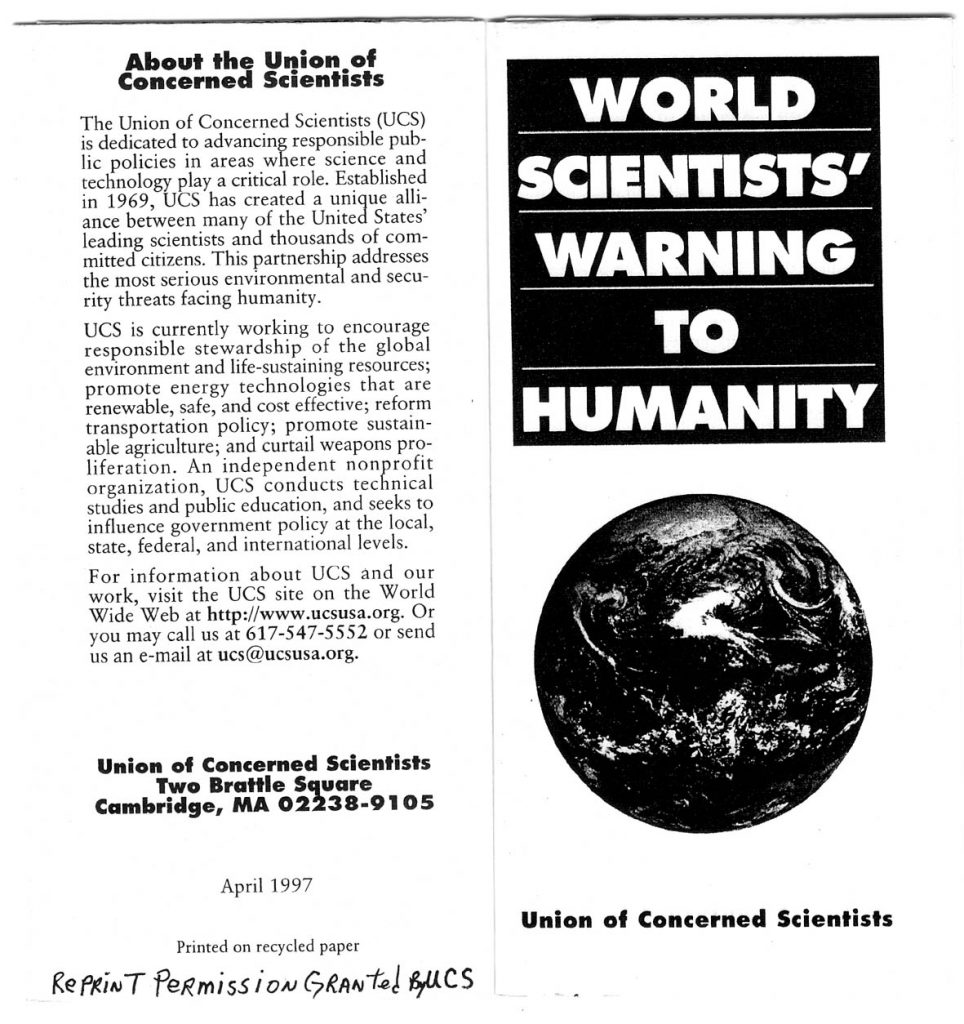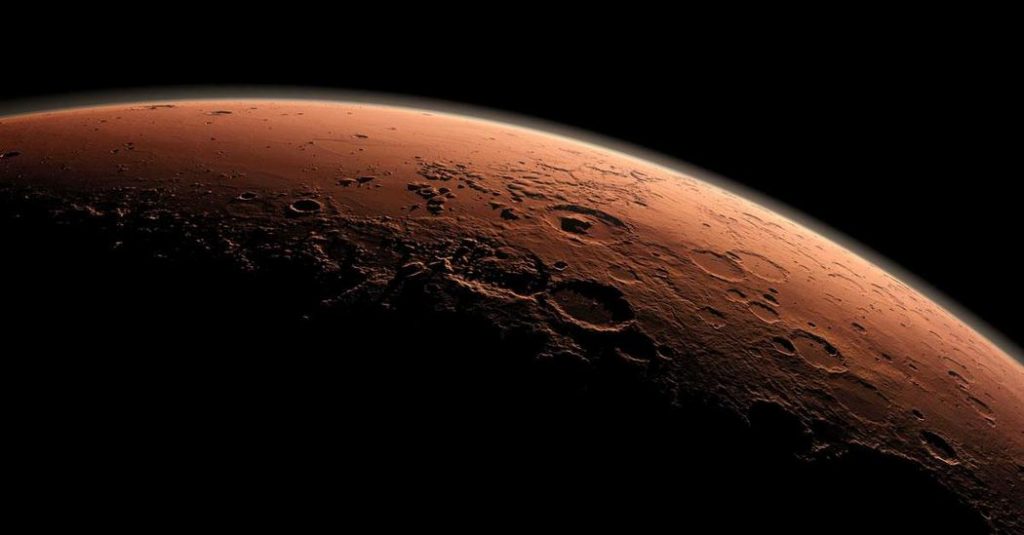Second Warning to Humanity
In late 1992, 1700 scientists around the world issued a dire letter named “Warning to Humanity”. It listed the then environmental impacts (which are pretty much the same even now, who says time changes.) Those sounded straight outta bible. Like stratospheric ozone depletion, air, and water pollution. The collapse of fisheries, species count loss. The loss (yeah I’m gonna use “loss” a lot here. No it’s not my focus keyword.) of soil productivity and deforestation. The lead was still on the catastrophic global climate change caused by burning of fossil fuels. On the 25th anniversary the “Warning to Humanity” is revised by scientists as “Second Warning to Humanity”.
The original letter

The original letter was lead by Henry Kendall, a particle physicist, and co-founder of Union of Concerned Scientists foundation. In short, it says, if unchecked, this would leave to planet inhabitable.
“If not checked many of our current practices put at serious risk the future that we wish for human society and the plan and animal kingdoms, and may so alter the living world that it will be unable to sustain life in the manner that we know.” – Henry Kendall
On the “Second Warning to Humanity”, researchers issued a follow-up. A communique (I’m not sure what that is, maybe like a post?) published in the journal of BioScience. The letter was spearheaded by Oregon State University ecologist William Ripple, serves as a second notice.
“Soon it will be to late to shift course away from our failing trajectory.” – William Ripple

Current revision – the second warning
The response was joined by more than 15,000 scientists (an increase from 1992 that I feel good about.) from 184 countries. They assessed the world’s lastest response to those environmental threats explained in the predecessor of the “Second Warning”. You guessed it right, we did a terrible job. Some people still deny the very concept of climate change.
“Humanity has failed to make sufficient progress in generally solving these forseen enviromental challenges, and alarmingly most of them are getting far worse,” – Second Warning to Humanity
The new letter still had global climate change as it’s priority. Other than that, the global average temperature has risen over half a degree since 1992. The Paris Agreement is kind of our last hope to prevent the damage from becoming irreversible. The Annual carbon dioxide emissions have risen by 62%. Though in the auto industry, car companies are following the lead of Tesla Motors towards making electric cars more mainstream.

Access to fresh water has declined, so as the amount of forestland. And the number of wild fish caught (a marker of the health of global fisheries). Ocean dead zones have increased. And we have produced 2 billion more of us, to make this devastation even faster. Ironically, with the increase in our population. The number of mammals, reptiles, and amphibians have declined by more than 30%.
The only positive

The only ray of hope in darkness is way up in the stratosphere (the zone where planes fly). The hole in the protective ozone layer (the layer that protects you from getting fried by sunrays) has shrunk to its smallest size in 1988. The main reason for this is phasing out from the use of CFCs (chlorofluorocarbons, thank you science class). It was used in refrigerators, air conditioners and aerosol cans ( the stuff used in Trump’s hairspray). CFCs trigger the reaction that breaks down the ozone layer (P.S. it’s also lethal but we need it. Now there’s your irony).
“The rapid global decline in ozone-depleting substance shows that we can make positive change when we act decisively” – Second Warning to Humanity
Okay, I use too many of these quotes. But I really like ’em. The gist of it is, do something now or plan to leave for Mars. What do you think about the current state of our planet? Comment down below.

